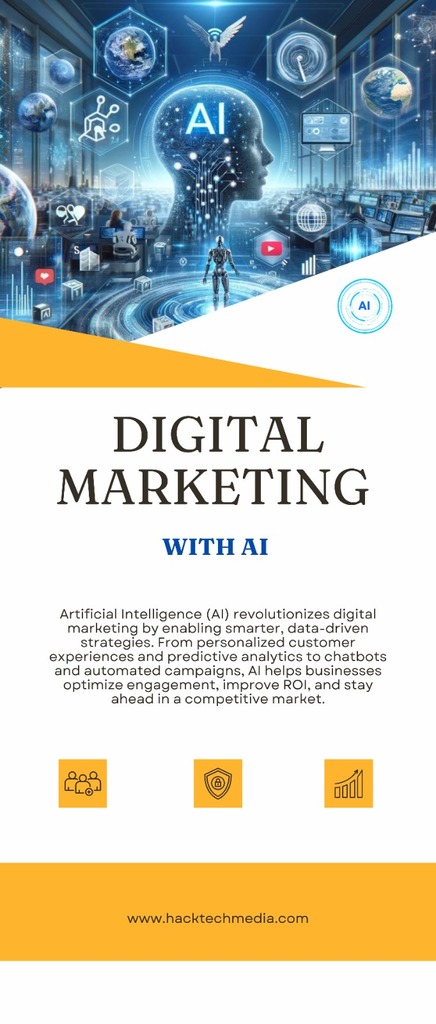
Quantum computing is set to redefine the IT industry, promising vast improvements over classical computing’s capabilities. Unlike classical computing, which uses bits, quantum computing relies on qubits, which enable unprecedented processing power and parallelism. As industries expand their data and computational needs, the introduction of quantum computing is projected to transform everything from data processing to cybersecurity and artificial intelligence applications.
The IT industry stands to benefit immensely from quantum advancements. From solving complex calculations to bolstering encryption standards, quantum computing could be the foundation for a new era in technology. The pace of development and integration within IT indicates that we are on the brink of experiencing a computing revolution that will drive the digital transformation further. This article explores how quantum computing will impact the IT industry and the potential benefits that come with this emerging technology.
Understanding Quantum vs. Classical Computing
Quantum computing differs fundamentally from classical computing. Classical computers operate on bits that are either 0 or 1, but quantum computers use qubits that can exist as 0, 1, or both simultaneously due to superposition. This unique ability enables quantum computers to handle complex computations at an exponentially faster rate than classical systems.
In addition, entanglement—a phenomenon where qubits become interconnected, allowing one qubit’s state to instantaneously influence another’s—enables more efficient problem-solving. While classical computing has powered IT infrastructure for decades, it faces limitations in processing speed and scalability as data demands increase. Quantum computing, with its unique characteristics, addresses these limitations, paving the way for new possibilities in fields such as cryptography, complex simulations, and artificial intelligence.
Key Quantum Algorithms Shaping the IT Industry
Quantum algorithms are at the heart of quantum computing’s potential in IT. Shor’s algorithm, for example, enables efficient factorization of large numbers, which has significant implications for cryptography, challenging current encryption standards. Grover’s algorithm enhances database search processes, allowing data retrieval at speeds unattainable by classical computers.
These algorithms illustrate quantum computing’s ability to tackle problems that were previously insurmountable. As the IT industry integrates these algorithms, we can expect improvements in areas such as machine learning model training, data analysis, and resource optimization. The adoption of quantum algorithms has the potential to speed up IT operations, making processes more efficient and accurate across various applications.
Quantum Hardware Developments: Pushing Boundaries in Computing
Quantum computing hardware is essential to realizing the benefits of quantum algorithms. While classical computers rely on traditional microchips, quantum computers require specialized hardware such as superconducting circuits and ion traps to support qubit manipulation.
Leading tech companies and research institutions are investing in quantum hardware innovations. The development of more stable and scalable quantum systems is necessary for quantum computing to become viable for commercial and industrial applications. Quantum hardware advancements will play a crucial role in establishing reliable, large-scale quantum systems that IT sectors can implement effectively.
Applications of Quantum Technology in the IT Sector
Quantum computing offers numerous applications that could revolutionize IT.
Enhanced Data Processing Capabilities
Quantum computing can handle vast amounts of data faster than any classical system. This capability has significant implications for big data processing in sectors such as finance, healthcare, and logistics. As quantum processors evolve, IT companies will be able to manage larger datasets with greater efficiency, leading to faster insights and decision-making processes.
Quantum Computing in Cryptography and Security
Quantum computing’s potential to break classical encryption models presents both opportunities and challenges for IT security. Quantum-resistant cryptographic techniques are under development to protect data from quantum decryption capabilities. Quantum cryptography, based on principles like quantum key distribution (QKD), promises secure data exchange methods that are immune to eavesdropping, which could revolutionize data security practices in the IT industry.
AI and Quantum Computing: A Powerful Synergy
The convergence of quantum computing and artificial intelligence (AI) holds transformative potential. Quantum computing accelerates AI algorithms by enabling faster data analysis and complex calculations, critical for training machine learning models. This synergy is particularly impactful in fields requiring real-time data processing, such as autonomous driving, financial modeling, and healthcare diagnostics.
As quantum computing matures, we can expect advancements in AI-driven applications, including pattern recognition, natural language processing, and predictive analytics. The combination of quantum and AI technologies promises an era of enhanced intelligent systems, transforming industries that rely heavily on data-driven insights.
Challenges and Limitations in Quantum Computing
Despite its promise, quantum computing faces significant challenges. Maintaining qubit stability (coherence) is a major hurdle, as qubits are sensitive to environmental factors. Quantum error correction, a method for stabilizing qubit states, is still in development, impacting the scalability and reliability of quantum systems.
Additionally, high costs and specialized infrastructure requirements make quantum computing inaccessible for many organizations. These challenges must be addressed before quantum computing can fully integrate into mainstream IT, though ongoing research and investment indicate steady progress in overcoming these obstacles.
Future Prospects: The Scalability of Quantum Computing in IT

Scalability is a key factor in the adoption of quantum computing across industries. With advances in quantum hardware and algorithms, quantum systems are expected to scale, accommodating more qubits and reducing error rates. This scalability is essential for integrating quantum computing into large-scale IT infrastructures.
As scalability improves, quantum computing will transition from research labs to real-world applications. The IT industry, from cloud computing to data analytics, stands to benefit from scalable quantum systems that can address complex computational demands and drive innovative solutions.
Quantum Computing in Industry Use Cases: Real-World Applications
Quantum computing is starting to find real-world applications that illustrate its potential in transforming the IT industry. From healthcare to finance, the technology’s unique abilities are being leveraged to tackle challenges that were previously too complex or time-intensive for classical computers. Here’s a look at some industry use cases that demonstrate how quantum computing could redefine IT infrastructure:
- Healthcare and Drug Discovery: Quantum computing is revolutionizing drug discovery by enabling researchers to simulate molecular structures and reactions at an atomic level. This could significantly speed up the drug development process, allowing pharmaceutical companies to bring life-saving drugs to market more quickly.
- Financial Modeling and Risk Analysis: In finance, quantum algorithms improve the accuracy and speed of complex financial models, allowing for enhanced risk assessment and portfolio optimization. Banks and investment firms are experimenting with quantum computing to simulate economic scenarios, ultimately helping to make better financial predictions and decisions.
- Supply Chain Optimization: Quantum computing’s ability to analyze vast amounts of data in real-time is transforming supply chain management. By optimizing routes, managing inventory, and predicting demand patterns, quantum technology enables companies to reduce costs and improve efficiency across the supply chain.
- Climate Modeling and Environmental Solutions: Quantum computing provides the computing power needed to run accurate climate models, helping scientists understand environmental changes and develop strategies for sustainability. This is crucial for creating more precise climate forecasts and addressing global environmental challenges.
These examples highlight how quantum computing is not only theoretical but already showing practical applications that could transform industries through IT advancements.
Preparing for Quantum Computing’s Future in IT: Actionable Insights
As the quantum era approaches, the IT industry must begin preparing for its potential impacts. Organizations can take several actionable steps to stay ahead in this evolving landscape:
- Invest in Quantum Research and Development: To harness quantum computing’s potential, IT firms should allocate resources to research and development. This includes establishing partnerships with quantum research institutions and collaborating with tech companies investing in quantum hardware and software solutions.
- Upskill Workforce for Quantum Technology: The IT workforce will need specialized skills to work with quantum technologies. Organizations can start training employees in quantum computing fundamentals, preparing them to handle future applications and challenges.
- Develop Quantum-Resistant Encryption Protocols: With the potential for quantum computing to break classical encryption, IT security teams should invest in quantum-resistant cryptographic methods. These protocols will help safeguard sensitive information and ensure cybersecurity resilience.
- Stay Informed on Quantum Computing Advancements: The field of quantum computing is progressing rapidly, with new breakthroughs regularly reported. IT leaders should stay informed about the latest advancements in quantum hardware, algorithms, and applications to make timely, informed decisions.
- Evaluate Potential Quantum Use Cases for Your Industry: Each industry will find unique applications for quantum computing. IT decision-makers can evaluate specific use cases in their sector to determine where quantum technology could offer the most significant impact, whether through faster data processing, optimized workflows, or enhanced security.
Taking these steps now will prepare organizations for the quantum computing transformation, positioning them to capitalize on the opportunities this technology offers.
Conclusion: Embracing the Quantum Computing Revolution in IT
Quantum computing is on the brink of transforming the IT industry, offering solutions to complex problems that classical computers struggle to address. By enhancing data processing speeds, revolutionizing cryptographic methods, and powering advanced AI applications, quantum technology is set to redefine the IT landscape. Despite the challenges in scalability, error correction, and high implementation costs, advancements in quantum research and hardware development indicate that these obstacles are gradually being overcome.
The IT industry must remain proactive, investing in the necessary infrastructure, skills, and security protocols to harness quantum computing’s full potential. As quantum technology continues to evolve, those who adapt and prepare will lead the way into a new era of digital transformation, marked by unparalleled computational power, robust security, and innovative breakthroughs. Embracing the quantum computing revolution is not just an option for the IT industry; it’s a pathway to a future that redefines the very nature of technology.
Written By – Seema Kanojiya







